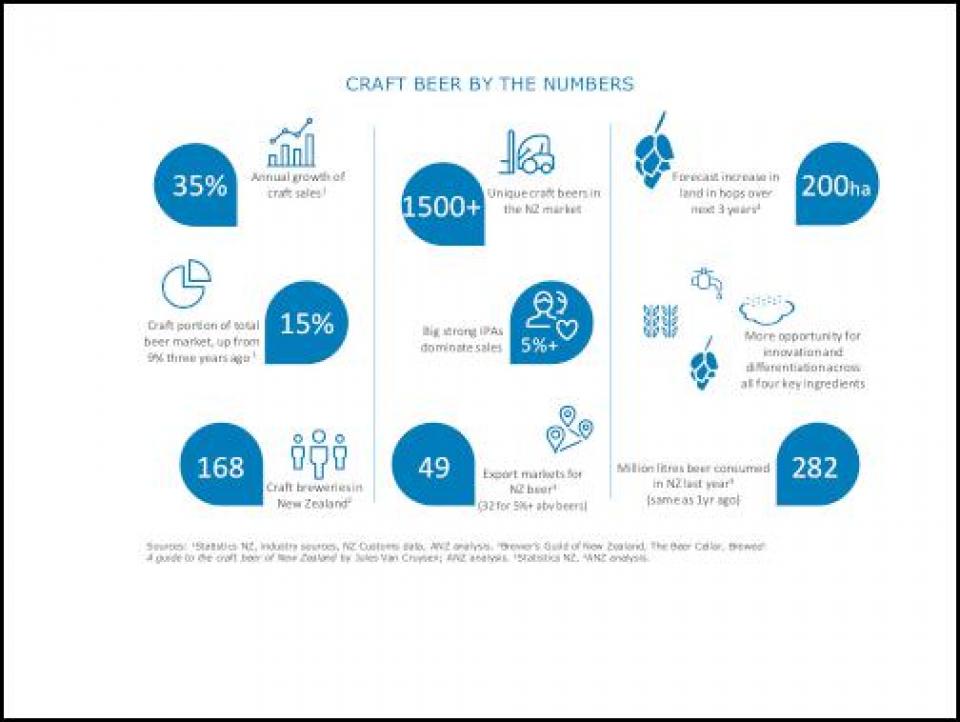The good times continue to flow for New Zealand’s craft beer industry with sales up by 35% in the past year amid an ever growing thirst for big flavour beer, research from ANZ reveals.
Kiwis now have a choice of more than 1,500 New Zealand Craft beers from over 150 breweries across the country. With intense competition at home, New Zealand beer is also selling into 49 export markets, led by Australia, according to ANZ’s 2016 Craft Beer Industry Insights report, released today ahead of this week’s Beervana expo in Wellington.
The report finds that craft’s share of domestic beer sales has grown to 15%, from 9% three years ago. To support ongoing growth, ANZ forecasts a 200 hectare increase in hop plantings over the next three years, an increase of approximately 50% on the existing planted area.
Last year’s ANZ craft beer report revealed a third of brewers were already exporting, with a further third eyeing future exports. Data now shows that exports of higher alcohol beers (typical of craft styles) have grown from $1 million five years ago to $4.5 million last year.
“Big flavour beer continues to win the day as the industry goes from strength to strength,” said John Bennett, ANZ General Manager, Central Region, for Commercial & Agri.
“Demand is rising thanks to enthusiastic and increasingly discerning consumers at home and growing international interest, resulting in diverse opportunities across the industry.
“But as the juggernaut continues it’s not all beer and skittles. For some brewers with sales on the rise, business growth can feel like holding a tiger by the tail. Increasing competition comes with challenges: shelf space is limited, as are resources such as staff, manufacturing capacity, some key ingredients and working capital.
“Large and small brewers alike are also having to confront a lack of scale. Solutions are emerging. For some, it means developing business capabilities to attract investment to build plant. Others are turning to licence or toll-brewing for consistent quality and known production costs, allowing the brewer to concentrate on product development and marketing.


